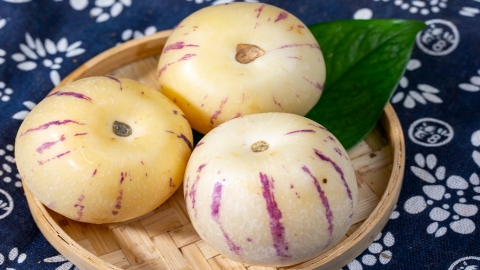Can pregnant women eat ginseng fruit?
Generally speaking, pregnant women can eat人参果 (Solanum muricatum), as long as consumption is moderate. Detailed explanations are as follows:

人参果 is rich in vitamin C and B-complex vitamins, which can help enhance pregnant women's immunity, participate in bodily metabolism, and alleviate fatigue during pregnancy. It also contains various minerals, such as calcium, potassium, and phosphorus. Calcium promotes the development of the fetus's bones and teeth, while potassium helps maintain normal electrolyte balance during pregnancy. In addition, 人参果 has a high water content and a crisp, sweet taste, which can stimulate appetite. Moderate consumption can supply various nutrients and provide certain health benefits during pregnancy.
When consuming 人参果, it is important to choose fruits with appropriate ripeness. Unripe fruits may have a hard texture and potentially irritating components, so they should be avoided. Each serving should not be excessive—1 to 2 medium-sized 人参果 are sufficient. Overconsumption may burden the digestive system. Before eating, the peel should be thoroughly washed and the calyx removed. The fruit can be eaten raw or cut into pieces and consumed together with other fruits. If the pregnant woman is allergic to 人参果 or has elevated blood sugar levels, weak spleen and stomach function causing diarrhea easily, she should consume it cautiously or consult a physician. If discomfort occurs after consumption, intake should be stopped immediately and medical attention sought.







